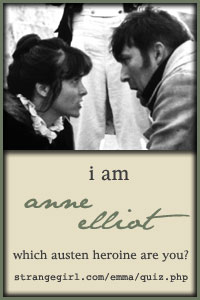Happy Independence Day. Promise yourself to do something daring and defiant, wholly
your own! Write your name with a
sparkler across the summer dark; send bottle rockets off into the western sea after
the fleeing sun, declaring victory against every kind of oppression and
belittlement. Escape the Chîteau
d’If with breathtaking swordplay.
Let nothing but the wind catch you—in play, in cameraderie. Grill some sausages and peppers, and
drink draft rootbeer. Spit
watermelon seeds wherever you jolly well want. Dream of a crop of green stripes. Or do none of this, if you don’t choose to.
“And for the support of this declaration, with a
firm reliance on the protection of divine providence, we mutually pledge to
each other our lives, our fortunes and our sacred honor.”
—Thomas Jefferson
“Degrees of ability vary, but the basic principle
remains the same: the degree of a man's independence, initiative and personal
love for his work determines his talent as a worker and his worth as a man.
Independence is the only gauge of human virtue and value. What a man is and
makes of himself; not what he has or hasn't done for others. There is no
substitute for personal dignity. There is no standard of personal dignity
except independence.”
—Ayn Rand, The
Fountainhead
“People have only as much liberty as they have the
intelligence to want and the courage to take.”
—Emma Goldman
“No man is great enough or wise enough for any of
us to surrender our destiny to. The only way in which anyone can lead us is to
restore to us the belief in our own guidance.”
—Henry Miller
“I will not be ‘famous,’ ‘great.’ I will go on
adventuring, changing, opening my mind and my eyes, refusing to be stamped and
stereotyped. The thing is to free one's self: to let it find its dimensions,
not be impeded.”
—Virginia Woolf, A Writer’s Diary
“Where we choose to be, where we choose to be--we
have the power to determine that in our lives. We cannot reel time backward or
forward, but we can take ourselves to the place that defines our being.”
—Sena Jeter Naslund, Ahab’s Wife, or The Star-Gazer
“Maybe your country is only a place you make up in
your own mind. Something you dream about and sing about. Maybe it's not a place
on the map at all, but just a story full of people you meet and places you
visit, full of books and films you've been to. I'm not afraid of being homesick
and having no language to live in. I don't have to be like anyone else. I'm
walking on the wall and nobody can stop me.”
—Hugo Hamilton, The
Speckled People: A Memoir of a
Half-Irish Childhood
“Independence is a complex word in a foreign
tongue. To resist occupation, whether you're a nation or merely a woman, you
must understand the language of your enemy. Conquest and liberation and
democracy and divorce are words that mean squat, basically, when you have hungry
children and clothes to get out on the line and it looks like rain.”
—Barbara Kingsolver
“By today’s standards King George III was a very
mild tyrant indeed. He taxed his American colonists at a rate of only pennies
per annum. His actual impact on their personal lives was trivial. He had
arbitrary power over them in law and in principle but in fact it was seldom
exercised. If you compare his rule with that of today’s U.S. Government you
have to wonder why we celebrate our independence.”
—Joseph Sobran
image:
James Macneill Whistler, Night in
Black and Gold, The Falling Rocket
























.jpg)



























